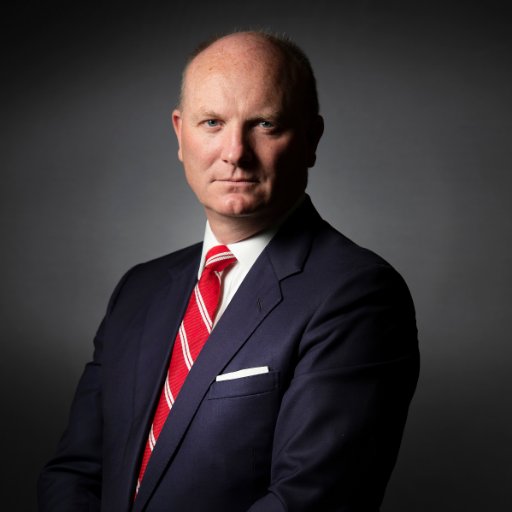László Molnárfi
From the lovely Cafe Tri Via in southside Dublin one can see a stretch of buildings, most of them the property of Trinity College Dublin, accumulated over the years for real estate investment. One of these, on the right, is CONNECT’s headquarters, a research center for telecommunications projects with the involvement of third-level institutions across the country. It is funded by the government, headquartered by the College and influenced by over 45 industrial partners. Partners, who hold sway over the institution, like Rivada Networks, whose controversial founder Declan Ganley is involved with the right- to far-right sphere.
It is this link that has led to Rivada Networks directly funding Trinity researchers, like in the case of then-Professor Linda Doyle’s and Peter Cramton’s 2016 paper on wireless markets, and many more through CONNECT.
This is somewhat of an open secret amongst people familiar with academic research, but is not widely known. It is important to note, however, so as to realize that the corrupting influence of capital goes much further than Trinity’s two and a half million euro investment into the armaments industry, and gets its claws much deeper in the institution. The history of CONNECT is representative of the ruling mode of production and the intensification of capitalism over the past few decades.
CONNECT used to be the CTVR, the Center for Communication and Value Chain Research of Trinity founded in 2004. It was now-Provost Linda Doyle who embarked on an ambitious project to transform it into what she envisioned to be a nation-wide multi-institutional research center. From this, CONNECT was born in 2015 as a public-private partnership, with the government’s Science Foundation Ireland (SFI) and corporate players funding its 300+ researchers who come up with ideas, and third-level institutions like Trinity managing their projects and profiting from the system through getting paid for administrative expenses. Trinity has an especially important role in the project, not only in headquartering, but it also hosts its directors, one of them who was now-Provost Linda Doyle until 2018, when another professor from the College took over.
Of course, the involvement of the government who demand spin-off companies with profitability and multinationals means it has an entrepreneurial bent.
This is where Rivada Networks comes into the picture, which is one of the corporate players involved in funding research and real-world applications thereof. Mr. Ganley, its Chairman and CEO, sits on the board of CONNECT. And if by nothing else, his influence can be measured by his net worth of €455 million euros, which he amassed through a network of businesses in Ireland, the United States and Russia, primarily in the telecommunications field. In June 2021, he and then-Provost-elect Linda Doyle did an interview on CONNECT’s YouTube channel, indicating his continued involvement, which becomes problematic when considering his political views, the organizations he runs and where he spends his money.
Mr. Ganley is described as one of Ireland’s most prominent conservatives, and he is on the limit of political respectability at first glance. Always one step shy from explicitly engaging in the extreme right network, he works to support the Christian, right-wing and far-right forces from the background. This is done mostly through funding and donations.
In 2017, he gave the seed money for so-called ‘conservative student newspaper’ The Burkean, which at the time described itself as a publication of Trinity students aimed to fight the ‘degeneracy’ in the western world. This is, of course, a common far-right dog whistle.
To take another example, at the time of the abortion referendum in 2018, he campaigned fiercely on the ‘No’ side, even saying that he will ‘not pay taxes that fund abortion’.
The question is, of course, where the profit motive lies and where his money is coming from. Naturally not solely from endeavours such as CONNECT’s spin-off companies, Rivada Networks is supported by right-wing interests around the world. It is not a coincidence that his company employs people such as John McGuirk, the editor of far-right newspaper Gript.ie and political player who once called a pro-choice TD, Kate O’Connell, a “catty, spiteful, loathsome twit”. He was communcations director for the anti-abortion “Save The 8th” campaign in 2018, and during his time at Trinity College Dublin he was “was forced to apologise after anonymous emails used to make allegations of sexual harrasment against a member of TCD’s College Historical Society were traced back to him”.
To find other proof for the involvement of vested interests one only has to open a newspaper. Near the end of his presidency, it was reported that Donald Trump was pressuring the Pentagon to give a no-bid contract to develop 5G spectrum to Mr. Ganley’s company, ‘whose prominent investors include Fox News regular Karl Rove and Peter Thiel, Trump’s biggest supporter in Silicon Valley’.
This is not to mention that the directors of Rivada Networks include a former lieutenant general, two formal admirals and a former deputy-secretary of Homeland Security, who also sits on the board of LockHeed Martin, a defense contractor that Trinity coincidentally has an investment of 721,473 € in. In addition, it includes Richard B. Myers, fifteenth Chairman of the Joint Chiefs of Staff, who oversaw the 2001 invasion of Iraq by the United States. Mr. Ganley himself, through using Rivada Networks as a telecommunications supply company, tried to profit from the U.S. invasion of Iraq by securing contracts for the failed reconstruction effort in 2003.
Later, between 2004 and 2008, ‘Rivada Pacific won contracts totaling $37.3 million from the U.S government.’
In this light, Mr. Ganley’s former political party, the so-called Libertas, also makes sense. He set up Libertas to campaign against the ratification of the Lisbon Treaty in 2018 in alliance with national-conservative forces, on a platform that presented itself as defending the ‘libertarian democracy’ of the European Union (EU). However, upon closer inspection, this was a red herring. The Irish Times in 2008 reported that Mr. Ganley’s aspirations came as part of his vision, written down in a paper for the Foreign Policy Research Institution (FRPI) in 2003, a neoconservative think-tank that promotes military interventionism and U.S. foreign policy goals, which at their core arise from an ever-growing need to expand the markets that capital can spread to.
In this paper, he denounced European criticism of the Iraqi invasion, and declared that the EU must cease its ‘contradistinction to the United States, [that] this new Europe must be an equal partner and influence in the worldwide extension of justice and liberty,’ – a goal which Libertas shamelessly promoted.
Declan Ganley’s ex-Party, Libertas, also allied itself with the Simon Wiesenthal Centre, a pro-Israel organization which claimed in 2013 that BDS is a “thinly-disguised effort to coordinate and complement the violent strategy of Palestinian, Arab, and Muslim ‘rejectionists’ who have refused to make peace with Israel for over six decades, and to pursue a high-profile campaign composed of anti-Israel big lies to help destroy the Jewish State by any and all means”.
As such, if Trinity wants to adhere to its mission statement to promote a campus culture of ‘dedication to societal reform’, it should be more careful of where it gets its funding.




